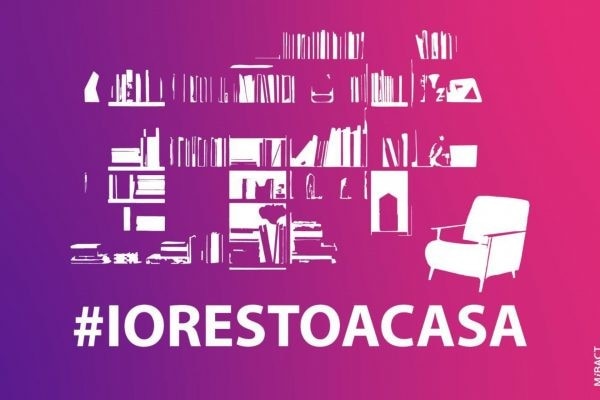If the state of national health emergency caused by the coronavirus has taught us something, it’s that a museum can survive even outside its walls, if willing to go off the traditional tracks. While the Prime Ministerial Decree of 8 March 2020 officially ordered the closure of all museums in Italy at least until 3 April, many institutions have taken the opportunity to implement new languages and forms of communication that cross the physical boundaries of the museum. Making sure that they'll still represent a valid educational means even when all this is finally over.
The Triennale di Milano is leading the way. It had decided to keep its museum closed to the public even when the former decree had allowed activities to resume for a few days. Now, the museum in Viale Alemagna is now focusing on “Decameron”: every day at 5pm on the @triennalemilano Instagram channel you'll be able to enjoy a meeting with an emblematic figure of art, cinema, literature or entertainment.
Other Milanese institutions have also taken the same approach, each following the style that best suits them. For example Brera. After explaining that this is “an unprecedented situation: even during the war Brera remained open, and even under the bombs the city was crowded and free”, Brera presented Notes for a Cultural Resistance: a daily event in which, as in a logbook, parts of the Pinactoteca or the technical aspects of its functioning are explained by the museum staff. There is also the director James Bradburne who - in his mother tongue - reads passages from literary works or children's books, highlighting the splendid Braidense Library. A similar project comes from the Museo Nazionale Scienza e Tecnologia Leonardo da Vinci with #storieaportechiuse, telling every day on its Facebook and Instagram channels its spaces, collections, interactive laboratories, scientific news and behind the scenes with short videos, images and unpublished documents.
This initiative doesn't involve just the Milanese territory, but the entire nation: the latest initiative was launched by MAMbo in Bologna with “2 minuti di MAMbo”, an everyday meeting that takes place on the YouTube MAMbo Channel at 3 p.m.: through the voice of artists and experts, the themes inspired by the current exhibitions will be discussed and works from the permanent collection and the Morandi Museum will be explored in depth. Each episode will be collected in weekly playlists that will be sent to all newsletter subscribers. The Uffizi in Florence have also opened the new Gallerie degli Uffizi Facebook page, where similar videos will be broadcast under the title #DecameronUffizi. You should keep an eye also on the MAXXI in Rome, which wrote on its website that “in this period, we will continue to meet and discuss on our online channels”, and is probably organizing virtual meetings and tours.
Speaking of virtual tours, let's not forget that you can use Google Arts and Culture to visit the most important museums in Italy - such as the Vatican Museums, the Uffizi Gallery, the National Archaeological Museum in Naples and many others - and in the world, such as the Louvre in Paris, the Sagrada Familia in Barcelona, the National Gallery in London and so on.
In this not so happy period, the good news is that the response of the cultural world is wide and creative, and everyone is trying to fight the difficulties, not only the art system. Think of those bookshops all over Italy that have activated a home delivery service: it's what Amazon already does, it's true, but with the intellectual and human support of a trusted bookseller who is making sure to select the right book for you. Another opportunity not to be missed is to browse through the extensive catalogues made available by Cineteca Milano and Mymovies, which from March 12th will make some films by contemporary artists available free of charge.
In short, there are a lot of ways to turn this forced imprisonment into a cultural enrichment. Whatever you choose to do, be responsible - and most importantly: #restateacasa.




